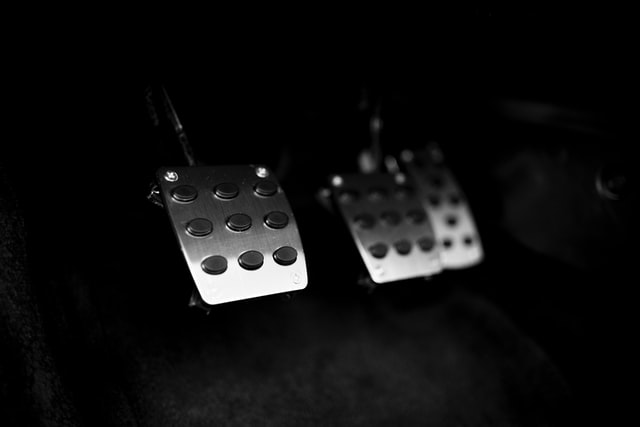There’s nothing more disheartening for a driver than when your car seems to be going wrong. Juddering and jerking when pulling away or accelerating can be one of the most unsettling experiences as a driver, not least because there are a number of different issues that could be causing the problem. While a qualified mechanic can diagnose and repair the problem, having an idea of what the cause might be can help you prepare for any repairs and resulting costs before taking your vehicle in. From clogged filters to worn components, here are the most likely causes of a jerky acceleration.
Faulty Fuel Filters Or Pumps
The most likely cause of a jerky acceleration, particularly one that doesn’t seem to change no matter how fast you’re going, stems from issues with fuel supply. If you have enough fuel in the tank but your car is still jerky when accelerating, it could be caused by a failing fuel pump or fuel filter. If the pump is faulty, this could cause a failure to keep up with fuel demand and cause the car to jerk or surge forward. A clogged filter, meanwhile, can restrict the flow of fuel and ultimately cause inconsistent fuel delivery, resulting in jerky driving.
Clogged Fuel Injectors
Fuel injectors are responsible for controlling the amount of fuel, and the time that the fuel is injected into the combustion chamber during driving. When these injectors become dirty or clogged, they can fail to run efficiently and ultimately cause you to miss out on optimum combustion. If your engine is jerking, the fuel injectors could be so clogged that they may not deposit enough fuel consistently enough for the vehicle to effectively function and ultimately lead to juddering and a stuttering engine. This is an issue that can be easily avoided by ensuring the injectors are regularly cleaned as part of routine maintenance. If they become too clogged, you may need to have them replaced or removed and manually cleaned in order to resolve the issue.
Worn Spark Plugs
Another one of the most common causes of jerky acceleration also happens to be one of the easiest to diagnose and fix, and one of the cheapest too – a faulty, worn or dirty spark plug can prevent adequate ignition within the vehicle which can cause the engine to misfire. This doesn’t always mean that the engine won’t start, however – if your engine has already started and you’re setting off, this can feel like the vehicle is jerking or stuttering. Fixing the problem simply involves replacing the part, which you should be doing according to your manufacturer’s advised schedule regardless.
Catalytic Converter Blockages
A vehicle’s catalytic converter is in charge of reducing the pollutants that are expelled from a vehicle via the exhaust, ultimately making driving a little better for the environment. If the air/fuel mixture is slightly off, this can cause build-up and blockages in the catalytic converter and ultimately disrupt the exhaust system itself. This results in issues such as jerking, rotten smells and a drop in the car’s efficiency. It can also trigger a ‘check engine’ light. Blockages can often be cleared out without replacement, but if it has been ongoing for some time or the blockage has become severe, it could need a complete replacement of the part.
Mass Airflow Sensor Failure
If your vehicle begins to jerk or surge when going at high speeds, this could be because of an issue with the Mass Airflow Sensor. This sensor measures the amount of air that enters the engine in order to relay the information back to the car’s computer in order to create the right balance of fuel and air at any one time. If the sensor is faulty, it can give incorrect signals and cause an imbalance of fuel and air and, ultimately, cause jerking and surging while out on the road. In most cases, a check engine light will appear, so it’s important to get it checked by a qualified technician as soon as possible.
Dirty Air Filters
As mentioned before, the balance of air and fuel can have a significant impact on how the vehicle runs, which is why a dirty or clogged air filter can cause issues with the operation of your vehicle. If not enough air can travel through the air filter, there may be too much fuel and too little air, or you could find that some dirt or debris may escape the filter and make its way into the engine. This, in turn, will cause jerking and juddering while driving and affect the overall performance.
While the above are some of the most common reasons for jerking when accelerating, there are a number of issues that still might be the culprit. It’s always best to have your car checked and diagnosed by a specialist in order to find the source of the problem and have it repaired. We are on hand to help – get in touch with our team to book your vehicle in for engine repairs, today.

